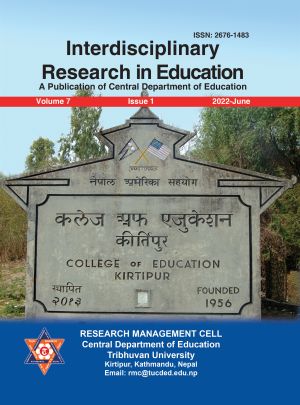Educating Students with Intellectual Disabilities in Nepal: Exploring Realities and Challenges fromTeachers’ Perspectives
DOI:
https://doi.org/10.3126/ire.v7i1.47498Keywords:
Students with intellectual disabilities, Special Education, Separate curriculum, Community-based curriculumAbstract
This study aims at exploring the realities and challenges that have been taking place for years while providing educational servicesto students with intellectual disabilities in Nepal. Interpretive-constructivist paradigm accompanied by phenomenological research design was usedto carry out this research. Eight teachers teaching to thestudents with intellectual disabilities were chosen from four special schools (two from each) located within Kathmandu valley by using purposive sampling method, and then all sample teachers were interviewed by using in-depth interview technique to collate credible and authenticinformation required for the study. Study results reveal that a number of attempts such as special education services in a separate setting, distinct structure of curriculum, community-based instruction, etc. had been made to optimize the access of these students to educational program. Nevertheless, thestudents with intellectual disabilitieswere not receiving quality educational services because of various challenges such as inadequate training to teachers, poor expectations from children, insufficient resources, etc. These students, therefore, should be taught in an inclusive educational setting byproviding community-based services based on the severity of their disability.




